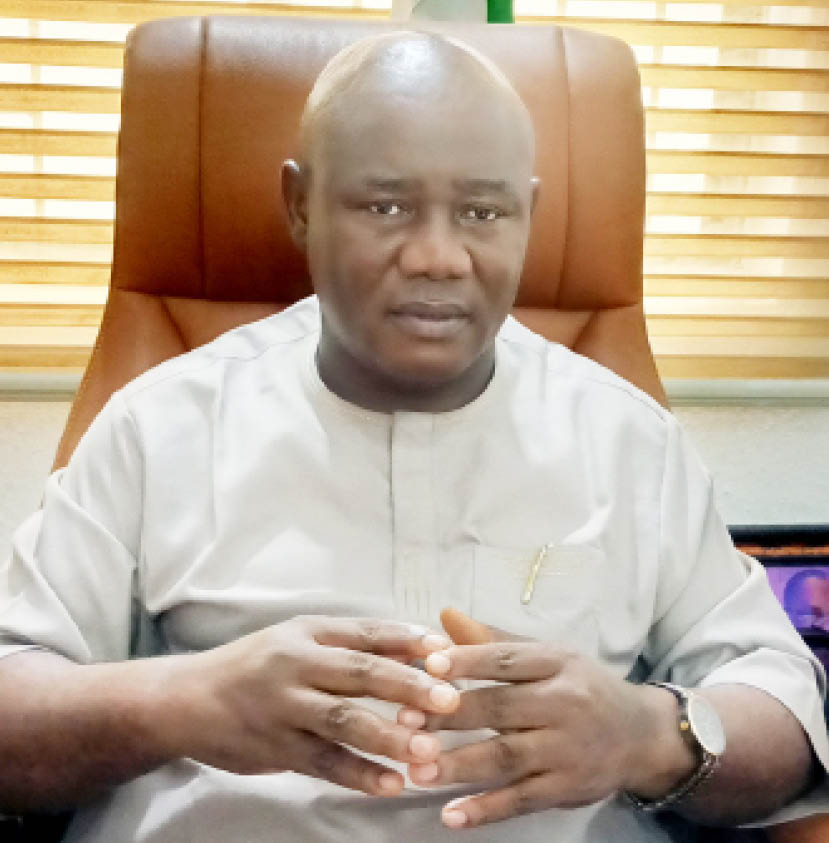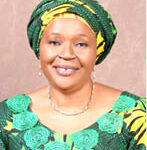Barrister Festus Adebayo is the convener of the Africa International Housing Show (AIHS). In this interview with Daily Trust, he says that the event this year, scheduled to hold from July 22 to 27, will address critical issues concerning housing funding in the country and provide solutions that will tackle the perennial problem, adding that the event will feature over 500 exhibitors and about 15,000 participants.
What informed AIHS?
First of all, housing is so critical that it cannot be left in the hands of the government as there is a niche for the private sector to come in. The problem of housing is increasing every day. The only difference is that different countries’ leaders are using different approaches. In the UK, within the first three days of the new government, the government promised they would deliver about five million houses. In America, billions of dollars are earmarked for delivery of affordable housing annually.
In Nigeria, the current federal government has established a full-fledged Ministry of Housing and Urban Development. The ministry is currently performing a ground-breaking ceremony under the Renewed Hope Homes scheme from one state to the other. However, waiting for these houses to come up will take some time. As such, it is better for us to try than not to try, and that is my position.
So, governments are using different approaches. For our own country and other countries in Africa to do well in the provision of housing, we introduced the AIHS to serve as that avenue for interaction and networking by stakeholders and operators in the housing sector.
- NIGERIA DAILY: The Link Between Illegal Mining and Banditry
- Ex-minister Dalung berates Tinubu, Onanuga, says protest sacrosanct
AIHS is a platform where stakeholders network, exchange ideas; where stakeholders provide solutions to issues and problems. It is that platform where the private sector meets the government, where the executive meets the legislature to discuss housing matters. The truth is that everyone needs a house, everyone deserves a house, and I think recently Mr President confirmed that at the launching of the Renewed Hope Homes in Karsana.
They said, “Every Nigerian deserves a house.” That statement was what led to the birth of AIHS. It’s a journey we have been on for a long time. We are not giving up on the notion that Nigerians must be housed; that Nigerians must have access to affordable, decent housing.
What are we expecting at this year’s event?
We are focusing on the theme: “The Financing and Housing We Need”. As you might have observed, finance is critical, because every country is saying there is no money. Inflation has gone up, so how do we finance the houses we are clamouring for? That’s what we are gathering to discuss this year, and people are coming from nothing less than 16 countries. We are also going to have nothing less than 500 exhibitors gathering together to showcase what they have, and we also are expecting over 15,000 participants.
All these are with the exception of visitors who will be interested in only visiting the exhibition booth. This year, you see different categories of products in the construction industry being displayed. We have a session for new products because you have to have alternatives and also have smart housing.
The 2024 AIHS is supported and organised in collaboration with the Federal Ministry of Housing and Urban Development, and I am happy to announce that our major partners includes the Dangote Cement Plc, Lafarge Cement Plc, BUA Cement Plc, Brains & Hammers, Urban Shelter, Federal Mortgage Bank of Nigeria (FMBN), Federal Housing Authority Nigeria (FHAN), Mortgage Finance Company, International Financial Corporation (IFC), Shelter Afrique and Shelter for Affordable Housing Finance South Africa.
What informed the choice of this year’s theme?
AIHS is that platform where people that are not credible cannot go; it’s a platform that promotes professionalism, integrity and honesty in the sector. The theme is targeted at addressing housing financing; the kind of houses that people can afford. By that, it means low-cost housing; which is social housing. Then we go into the main discussion of who is going to finance the housing we need. So, we are going to start the discussion to address this matter by looking at the issue. We will look at what data tell us, in the course of that, we know whether we are building for the right people, because there are complaints that there are so many empty houses. Empty houses are a product of not building for the right people that need the houses.
Therefore, 2024 will look into that aspect. It will answer the question if we are really building for the right people that need the houses or we are just building to continue to increase empty houses and not to address the housing deficit. So, we are going to look at the data and we are going to bring the Nigerian Population Commission (NPC) and the Nigeria Bureau of Statistics (NBS) to support the move.
In our quest to look into the financing issue, the Central Bank of Nigeria (CBN) will be involved, as its deputy governor in charge of economic policy is going to be part of this discussion. Also, we have assigned a day for FMBN. It is a day for us to interact with and to share the best practices in housing funding
Also, we are bringing in politicians because we need political will. Housing in Nigeria needs the political will of its leaders. If there is no political will of its leaders, then money allocated for housing will not be released until the end of the year; meaning the purpose would have been defeated. It is when there is a political will that the government will put housing as a priority.
AIHS will not shy away from the menace of building collapse that is desecrating the profession. We’re going to give it serious attention, we’re going to have sessions on it because if we don’t address building collapse, building collapse will claim us. Quacks are expected to hands off from housing construction because the government must stop corruption in the area of project monitoring.
How about states’ readiness for housing financing?
AHIS 2024 will not close without taking a report from commissioners for housing because we have reports that some states are not housing-friendly to investors. Therefore, we have invited some of the governors to join us, and we are going to make an effort to see anyone that has the best record. We can commend them to do more. We believe state governors must allow real estate to flourish in their domains. The idea of turning real estate to be a way of generating internal revenue by increasing building approval fee is detrimental to affordable housing delivery.
How can we address the issue of rising cost of building materials?
AIHS will not complete this show without looking at the effects of interest rate and the national economic policies on the production of houses in the manufacturing sector, because they have also affected the building materials market. We’re also not going to go without looking at what inflation has caused. We’re going to look at how the interest rate has become 36 per cent, and how it has tactically destroyed the mortgage system because nobody can get any mortgage loan at one digit except above 36 per cent because these companies have to put their home admin fees.
Therefore, the country must begin to think out of the box. Those who are involved in research studies like NBRRI should commercialise whatever research they have done because we are aware that they have a lot of research findings. We need to commercialise, because when we ask them, they say the law does not allow them. Therefore, that law must be amended by the National Assembly and allow NBRRI to commercialise their research studies and allow the private sector to collaborate with NBRRI to turn all those their products into a large scale that can make Nigeria get the majority of what it needs locally.
Similarly, I want to use this opportunity to inform you that exhibitors that are coming from abroad this year will be signing an MOU with the Lekki Free Zone Development Company to see how we can give them opportunities for local production. So, the issue of local production must be given a priority, because as of today, 80 per cent of what we are using for housing are imported; we must also change our thinking in that regard.

 Join Daily Trust WhatsApp Community For Quick Access To News and Happenings Around You.
Join Daily Trust WhatsApp Community For Quick Access To News and Happenings Around You.


